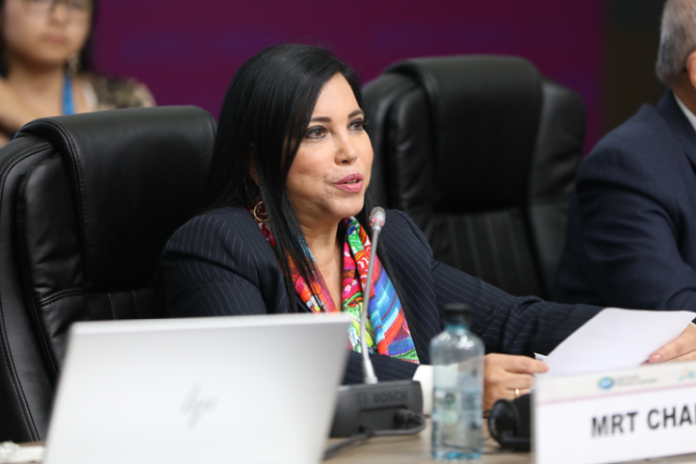By APEC
AREQUIPA, Peru – As global uncertainties pose risks to the region’s economic outlook, trade ministers met in Arequipa to forge stronger ties in their pursuit of trade liberalization, facilitation and inclusion, aiming to dampen these risks and fostering resilient economies.
“This meeting provides us the opportunity to reiterate our support for the World Trade Organization and its decisions, advance our efforts on the Free Trade Area of the Asia-Pacific (FTAAP) agenda, strengthen connectivity and resilient supply chains, and enhance micro, small and medium enterprises’ access to formal and global markets,” said Elizabeth Galdo, Peru’s minister of foreign trade and tourism.
The meeting, held on 17-18 May, called on ministers to intensify efforts to promote mutually supportive trade and investment policies, particularly in navigating the complex trade environment in the region shaped by a dynamic global economy, evolving regional partnerships and the lingering impacts of the pandemic.
With Peru, as the host of APEC 2024 set to reinvigorate the FTAAP, minister Galdo reiterated that this has been long-term endeavor and Peru is an active supporter of the FTAAP.
“Eight years later, since APEC leaders last adopted the Lima Declaration on FTAAP in 2016, we aim to instil the FTAAP agenda with additional guiding post, to make it more in tune with the changes in the international and domestic realms, especially the ones in the trading system,” minister Galdo said in her remarks at the meeting.
“Our work in advancing the new look of FTAAP is crucial to ensure that APEC keeps delivering in a global context of permanent changes and opportunities,” said ambassador Carlos Vasquez, 2024 chair of APEC senior officials’ meeting.
“FTAAP is a converging process in which we need to address challenges and opportunities that need to be considered as part of future trade agreements and undertakings. It is also an opportunity for building more inclusive trade as this is one of the best ways to achieve sustainable development,” ambassador Vasquez added.
Carlos Kuriyama, the director of the APEC Policy Support Unit, reported to trade ministers that while there has been a significant progress of reducing average tariffs in APEC, more work needs to be done to close the sizeable gap between tariffs on agricultural and non-agricultural goods. Kuriyama also reported that non-tariff measures affecting trade are growing, and account for 75 percent of the total of trade-restrictive measures.
“Amid the economic uncertainty and new trade challenges, APEC economies need to strengthen economic integration in the region to keep trade open, ensure stability and address new challenges. In this context, new and upgraded trade agreements could address new trade challenges.” Kuriyama added.
Setting the scene for the deliberation trade facilitation and trade and inclusion, APEC Secretariat Executive Director Dr Rebecca Sta Maria emphasized the integral role of this work, as member economies focus on moving business from the informal sector to the formal and global economy.
“We must ensure that our formal sector itself is business-friendly, that our processes and procedures are not onerous. In this context, the work we are doing through the Enhanced APEC Agenda for Structural Reform is necessary to ensure that our trade rules and regulations are fit-for-purpose and relevant and provide the incentive for those in the informal sector to transition to the formal economy,” Dr Sta Maria added.
Dr Sta Maria reiterated that APEC’s work on trade facilitation and regional economic cooperation, cannot be an end in themselves but the means to ensure economic benefits to all our people.
“The voices of small businesses, women entrepreneurs, Indigenous peoples and those with untapped economic potential, people with disabilities, and those in the informal sector must be heard as we work on trade facilitation and trade and inclusion,” Dr Sta Maria concluded.





